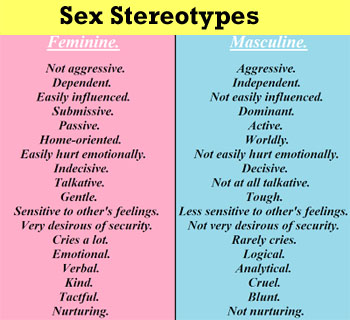By Tina Minkowitz
Feminists In Struggle, a U.S. radical feminist network, has developed a model bill to illustrate how the rights of gender nonconforming (including transgender) people and lesbians, gay men and bisexuals, can be protected while strengthening the rights of women as a sex. The model bill is a feminist response to the Equality Act, a bill introduced in the US Congress that would amend civil rights legislation to include under the category of ‘sex’, subcategories including ‘a sex stereotype,’ ‘gender identity’ and ‘sexual orientation’. By proposing feminist amendments to that bill, FIST hopes to advance the debate about how to resolve conflicts between women’s rights and claims regarding subjective gender identity.
 The central feature of the FAEA is that it protects everyone against sex stereotyping, broadly defined to include ‘the expectation that individuals will manifest behaviors, appearance, dress, grooming, interests and personality stereotypically associated with their sex and refrain from manifesting those associated with the other sex. Discrimination based on an individual’s nonconformity with such expectations constitutes sex-stereotyping discrimination. Sex stereotyping also includes the notion that sexual orientation will be heterosexual for both sexes (i.e. part of the stereotype of masculinity is being attracted to women, and part of the stereotype of femininity is being attracted to men).’
The central feature of the FAEA is that it protects everyone against sex stereotyping, broadly defined to include ‘the expectation that individuals will manifest behaviors, appearance, dress, grooming, interests and personality stereotypically associated with their sex and refrain from manifesting those associated with the other sex. Discrimination based on an individual’s nonconformity with such expectations constitutes sex-stereotyping discrimination. Sex stereotyping also includes the notion that sexual orientation will be heterosexual for both sexes (i.e. part of the stereotype of masculinity is being attracted to women, and part of the stereotype of femininity is being attracted to men).’
The definition of sex stereotyping is at the same time narrowed to prevent sex classification itself from being treated as a pernicious stereotype. ‘Sex stereotyping discrimination does not include merely recognizing or referring, accurately or in good faith, to the biological sex of an individual, or seeking to ascertain an individual’s biological sex for legitimate reasons consistent with this Act, irrespective of whether that person holds a deeply personal sense of identity that conflicts with or denies their biological sex.”’
 The FAEA model bill defines sex as being female or male, based on reproductive structure and function, with the potential to adjust determinations made about intersex persons. It contains findings that address the systemic nature of sex-based discrimination and the need for sex classification ‘in order to separate biological differences from socially assigned stereotypes and to name, reject, and ultimately dismantle the system of disadvantage and advantage, domination and inequality of power and resources that society has created with respect to these biological differences…. Affirmative recognition of the different biology of females and males is furthermore necessary to combat discrimination against women, since male-dominated institutions have routinely failed to adequately take account of women’s biology on an equal basis with that of men when formulating policy and practice that deals with the human body, in areas such as health care, design of goods and services, provision of adequate sanitary facilities, and competition in some sports. When doing so, the ultimate goal should be equalizing power and resources between women and men.’
The FAEA model bill defines sex as being female or male, based on reproductive structure and function, with the potential to adjust determinations made about intersex persons. It contains findings that address the systemic nature of sex-based discrimination and the need for sex classification ‘in order to separate biological differences from socially assigned stereotypes and to name, reject, and ultimately dismantle the system of disadvantage and advantage, domination and inequality of power and resources that society has created with respect to these biological differences…. Affirmative recognition of the different biology of females and males is furthermore necessary to combat discrimination against women, since male-dominated institutions have routinely failed to adequately take account of women’s biology on an equal basis with that of men when formulating policy and practice that deals with the human body, in areas such as health care, design of goods and services, provision of adequate sanitary facilities, and competition in some sports. When doing so, the ultimate goal should be equalizing power and resources between women and men.’
Furthermore, specific rules of construction are included that preserve single-sex spaces and programs for women and girls, for reasons of privacy and safety and also for advancement and development.
Finally, the FAEA agrees with the original bill that claims or defenses under the Religious Freedom Restoration Act cannot be raised against civil rights law obligations. FAEA also agrees with the original bill that discrimination based on pregnancy and related conditions should be included under ‘sex’, and FAEA adds ‘lactation’.
 Here are my slides for a presentation on the FAEA that provide more detail related to the explanation here.
Here are my slides for a presentation on the FAEA that provide more detail related to the explanation here.
The full FAEA and related materials, including a comparison summary and a tracked changes version, can be downloaded from the FIST website.
Please contact FIST to support the FAEA and otherwise become involved.

Courage calls to courage everywhere.
Although I agree that the current EA is devastating for women and lesbians, FIST amendments attempt to define “transgender” into law. This would be the worst possible scenario. “Transgender” does not exist. We cannot and should not give the delusion even a tiny bit of validity. We cannot use the Gender Cult’s language. They are men and women that conform the the sex stereotypes of the opposite sex. That is all. I know of other attempts to repair the EA. They do not define a lie into law. Other than that main error the amendments are well done. It would be easy to correct.